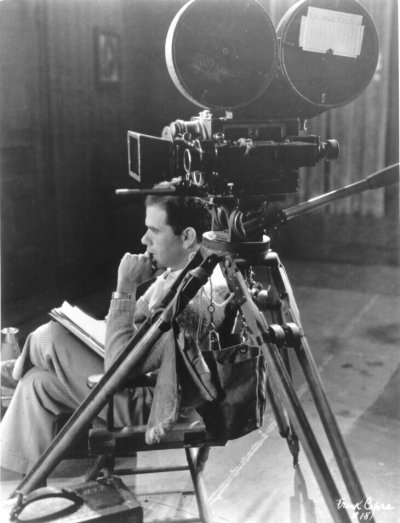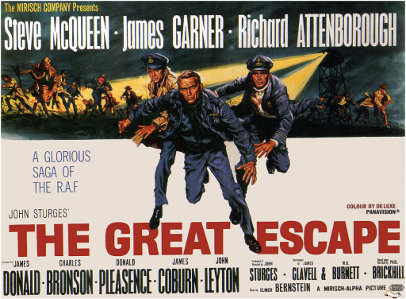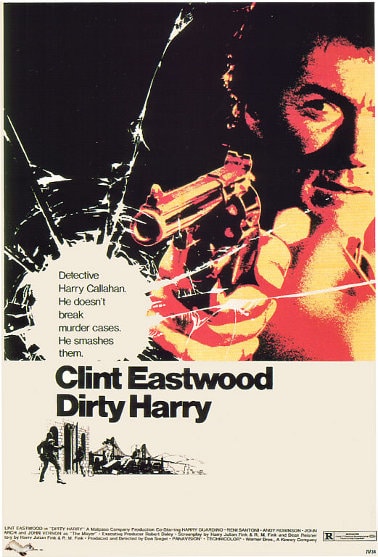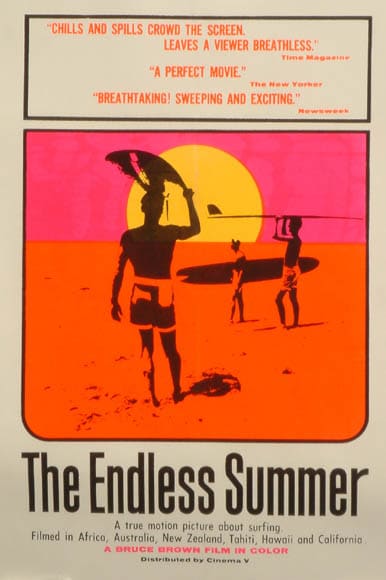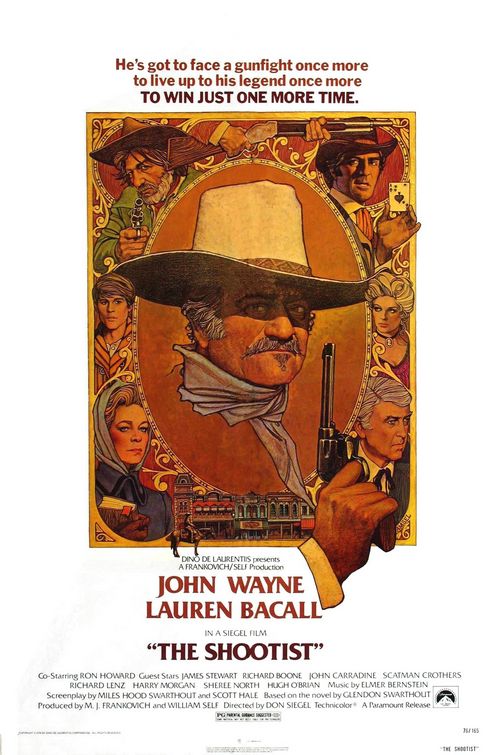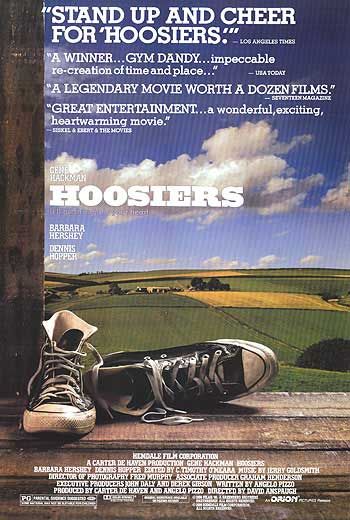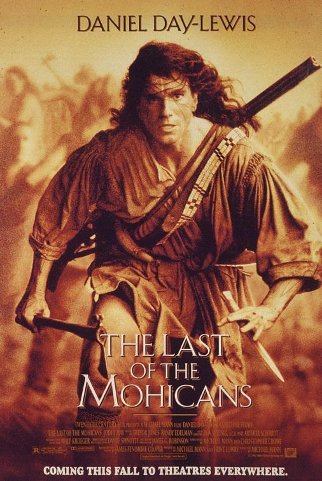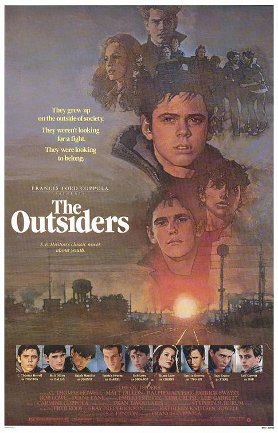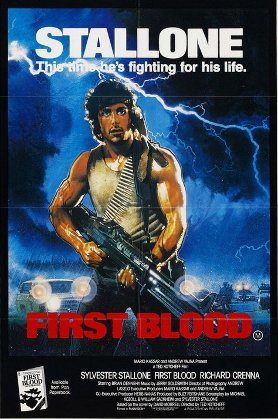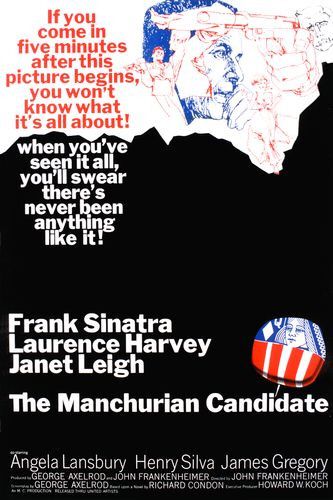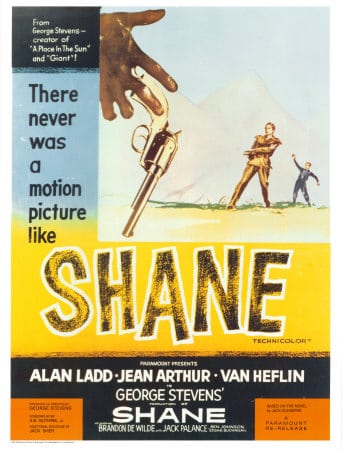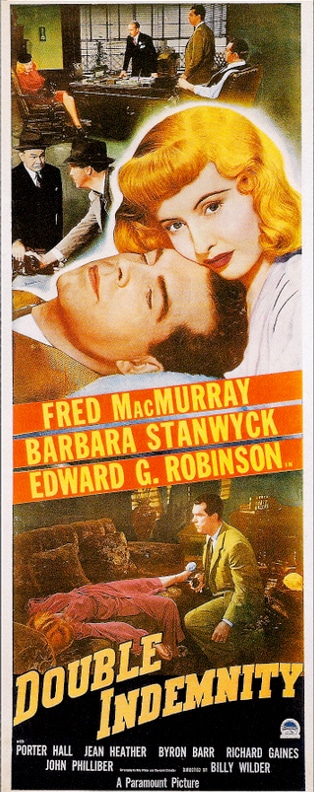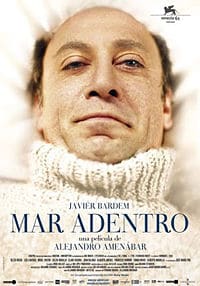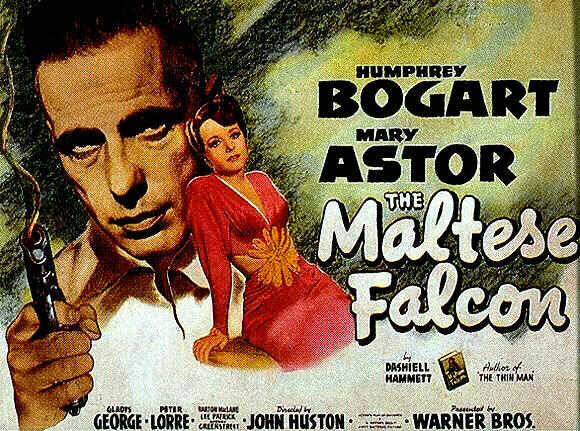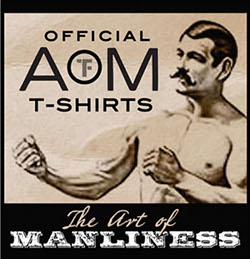Tuesday, March 30, 2010
Sunday, March 28, 2010
Sunday, March 21, 2010
Best Movies to Watch: 100 Must See Movies For Men | The Art of Manliness
For whatever reason (most likely the fact that viewing is easier than reading), films don’t seem to get the same kind of cultural respect as books do. Which is a shame because excellent movies can be just as entertaining, mind-expanding, and life changing as good books. Scenes, characters, and quotes from the greatest movies stay with us long after we view them. Their ability to transport you to different times and exotic locations, to completely absorb you in the story, make movies one of the closest approximations of real magic we have in this world.
And for better and for worse, film has had a huge impact on masculinity in the 20th Century. Movies have produced archetypes of manliness that many men judge themselves against today. To view how male characters of cinema have been portrayed over the decades, is to see clearly the ways in which our perception of masculinity has changed and continues to change. Thus it seemed only proper that The Art of Manliness take a stab at creating a list of essential movies every man should see.
We didn’t want to make a list of movies that consisted solely of violence and gratuitous T and A that make up most guy movie lists. Nor did we want to create a list of just independent avant-garde movies that while culturally or cinematically significant, aren’t very entertaining. We wanted to create a well rounded list of films that have something to say about manliness. Some of the movies speak poignantly about what it means to be a man. Others give examples of true manliness in action. Some are lessons in how not to be a man. And others are simply entertaining movies that are just plain manly. But the common thread that runs through all of them is that they’re great movies that have stood the test of time.
Let us know in the comments which movies you loved, which ones you hated, and the movies you think every man should see before he dies. Without further ado, we present The Art of Manliness 100 Must See Movies for Men.
The Great Escape
This group of Allied POWS fought the enemy the best way they could – by bustin’ out of prison. Based on a true story, the film has been hailed as one the greatest escape movies of all time. Despite its length (172 minutes), the movie maintains interest through the engaging relationships of the prisoners. Each individual contributes their skills and personality to the effort, even the self-interested American (played by Steve McQueen). I guess his skill would be making killer motorcycle chase scenes.
Best line: “I’m going… out.”
Butch Cassidy and the Sundance Kid
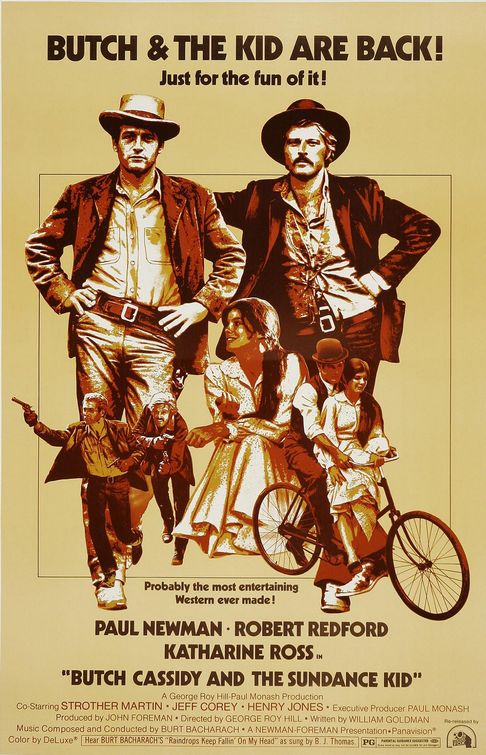
Based loosely on the real lives of Western outlaws Robert Leroy Parker (aka Butch Cassidy) and Harry Longabaugh (aka the Sundance Kid), Butch Cassidy and The Sundance Kid is a classic movie about two buddies trying to make it in a changing world. What’s funny about Butch Cassidy and the Sundance Kid is that you forget that these guys were hardened criminals who robbed banks and trains for a living. The easy going charm Robert Redford and Paul Newman bring to their roles makes you like the characters despite their choice of profession. Their clever hijinks and humor make the movie an enjoyable ride.
Best line: “Boy, I got vision, and the rest of the world wears bifocals.”
Dirty Harry
Cops that won’t let anything – even the law – stand in their way of catching the bad guy may have become a Hollywood cliché, but when Dirty Harry first pulled out his .44 magnum it was a brand new story. Harry Callahan stops at nothing as he hunts down the Scorpio, a serial killer that picks people off with a sniper rifle. The plot isn’t bad, but it’s Clint Eastwood that drives the entire picture. His rebel good- guy cop set a high mark for others to try and follow.
Best line: “You’ve got to ask yourself one question: ‘Do I feel lucky?’ Well, do ya, punk?”
The Endless Summer
Working 60 hours a week sucks. I mean, it really sucks. The idea of travelling around the world to exotic spots with the simple objective of surfing every chance you get is about the most enticing thing on the planet. In step Mike Hynson and Robert August. Famed documentary director Bruce Brown follows the pair around the world as they chase the summer and whatever waves they can ride. If you can’t surf, or you can’t take the time off work to surf – live vicariously through this movie.
Bull Durham
This movie is great for many reasons – of which, I cite two: 1) Kevin Costner can actually play baseball, instead of looking like a moron as do many other actors trying to swing a bat. 2) Tim Robbins character wears lingerie when he pitches – which is completely classic. Besides these, there are many other elements that make the movie relevant: the mentor/mentee, the old vs. the young, fighting for the woman, baseball. But ultimately it’s about a bunch of guys trying to make their mark on life – which we can all certainly relate to.
Best line: “Charlie, here comes the deuce. And when you speak of me, speak well.”
The Apartment
Do nice guys always finish last? Not necessarily. The Apartment is a true gem of a movie that doesn’t seem get the attention it deserves. Both dramatic and funny, the film is a dark comedy about a corporate drone who finally gets tired of being constantly walked on, mans up, and becomes a mensch. Things don’t always work out when you do the right thing, but sometimes they do.
Best line: “Shut up and deal.”
The Shootist
Nobody wants to die alone. Especially gunslingers. In a haunting portrayal that foreshadowed his own fate, John Wayne plays J.B. Brooks, an aging gunfighter dying of cancer who resigns himself to live out his days in private. But skeletons from his past prevent him from fading away, so he decides to go down the only way he knows – with his six gun blazing.
Best line: “I won’t be wronged. I won’t be insulted. I won’t be laid a-hand on. I don’t do these things to other people, and I require the same from them.”
Hoosiers
At its core, Hoosiers is about redemption – basketball is just the vehicle. The story revolves around a basketball coach that has fallen from grace and finds himself at a small rural town in Indiana. He ruffles feathers and fights to earn the respect of his players, the town, and a doubtful teacher. The team chases glory, while others in the town remember what it is like to win. Not only is it one of the most inspiring movies of all time, it has one of the most hardcore stoics in all of sport movie history. Jimmy = Clutch.
Best line: “You know, most people would kill… to be treated like a god, just for a few moments.”
Last of the Mohicans
This movie set the standard for war epics of the modern era. Few are its equal. A Mohican father and his son, along with their adopted son, attempt to maintain their neutrality amidst the French-Indian War in colonial America. The men are pulled into the fray after rescuing two daughters of a British Officer during a skirmish and escorting them to their father’s fort. As the impending battle builds around them, the men remain devoted to the daughters, going to great lengths to preserve them. From the opening sequence of Uncas and Hawkeye sprinting through the dense forest, to the final scene on the promontory, the movie is gripping and powerful. Additionally, they play lacrosse in this movie – that fact alone secured its place on this list.
Best line: “Someday I think you and I are going to have a serious disagreement.”
The Bicycle Thief
An Italian Neo-Realist classic, The Bicycle Thief tells the bleak story of a man in impoverished post-war Italy whose bicycle, which he needs to work, is stolen. Father and son hunt all over Rome to find the bike, with no one to help them and ultimately no success. And thus the father is faced with a classic philosophical problem: is it okay to steal to feed your family? Realistic and honest, this movie provides one of the best glimpses into the nature of the father/son relationship.
Best line: “Why should I kill myself worrying when I’ll end up just as dead?”
Field of Dreams
To what lengths would a person go for a chance at reconciliation? If it is for your (dead) father, most of us would do anything. Field of Dreams is Ray Kinsellas’s journey of reparation with his father. Ray, an Iowa farmer, erects a baseball field in his cornfield after a voice tells him, “If you build it, he will come.” The voice continues, and after a series of mysterious and supernatural events, he is able to make amends. It is quite possible that a game of catch can heal most wounds between a father and son – even death, I suppose.
Best line: “If you build it, he will come.”
North by Northwest
Starring dapper dude, Cary Grant, North by Northwest is classic Alfred Hitchcock. Grant plays a hapless New York advertising executive mistaken for a government agent by a group of foreign spies, and is pursued across the country while he looks for a way to survive. The problem is the government thinks he’s a spy, too, and they’re on the chase as well. Talk about a bad day.
Best line: “I don’t like the way Teddy Roosevelt is looking at me.”
The Outsiders
The film adaption of SE Hinton’s famous novel perfectly captures the tumultuous nature of teenage angst. The well-to-do Socs and blue collar Greasers hate each other’s guts, and when Johnny the Greaser kills a Soc, a series of dramatic and tragic events are set in motion, including an old fashioned rumble. The film is a star-studded affair, filled with the likes of Rob Lowe, Emilio Estevez, Matt Dillon, Tom Cruise, Patrick Swayze, Ralph Macchio, and Diane Lane, many before they were household names. And best of all, it was shot on location in my home city of Tulsa.
Best line: “Stay gold, Ponyboy, stay gold.”
First Blood (Rambo)
The more weighty issues in First Blood are usually overshadowed by the gratuitous action. Understandably so, but the movie is built on Rambo’s struggle to return to society after the Vietnam War. A Medal of Honor recipient, Rambo is kicked out of a small town and then arrested for vagrancy. The sheriff and his deputies go overboard with torture and Rambo reverts back to what he does best. Nothing good can come from pissing off a guy named Rambo.
Best line: “They drew first blood, not me.”
The Manchurian Candidate
A Cold War classic starring Frank Sinatra in probably his best movie performance. The film was so controversial that it was banned from further release after JFK’s assassination. The Manchurian Candidate focuses on the way in which propaganda and the manufacture of political views can influence one’s perception and behavior in the most provocative of ways. The story follows several former Korean War soldiers who have been brainwashed by the military. Follow them as they try to unravel the source of the reoccurring nightmares. A real thriller. Don’t bother with the Denzel Washington version. The original is still the best.
Best line: “There are two kinds of people in this world: Those that enter a room and turn the television set on, and those that enter a room and turn the television set off.”
In the Heat of the Night
Virgil Tibbs (Sidney Poitier), a respected detective from up North, is thrown into a murder investigation in the small town of Sparta, Mississippi. While he initially doesn’t want any part of the case, Tibbs exemplifies manly resolve as he sticks around, staring down bigot after bigot while searching for the murderer. The film is famous for a scene in which Tibbs, after being slapped by a white man, slaps him right back. The screenplay originally called for Poitier to simply take it, but the actor found this passive response degrading and insisted he be allowed to hit back. That my friends, is being a man. You slap me in the face, I’ll slap you right back, Sucka.
Best line: “They call me MISTER Tibbs!”
Shane
A quiet gunslinger who is trying to escape his past befriends a pioneer family that has settled out west. He attempts to settle down and become a hired hand to the family, but the ranchers who want to drive cattle through the homesteaders’ property are attempting to drive them out. Shane tries to stay out of the disputes, but keeps being drawn in and is finally compelled to put his six shooter back on to protect his adoptive family. Perhaps the most touching part of the movie is the relationship Shane develops with the farmer’s son.
Best line: “A gun is a tool, Marian; no better or no worse than any other tool: an axe, a shovel or anything. A gun is as good or as bad as the man using it. Remember that.”
Double Indemnity
Perhaps the greatest American contribution to the film noir style, Double Indemnity is dark rumination on greed, manipulation, and betrayal. Barbara Stanwyck plays a classic femme fatale who uses her womanly wiles to lure insurance salesman Walter Neff into a plan to kill her husband for the “double indemnity” payout. But Neff is not a guileless victim after all. Palatable tension, suspense, and snappy dialogue make this film a true classic.
Best line: “How could I have known that murder could sometimes smell like honeysuckle?”
Mar Adentro (The Sea Inside)
Politics of euthanasia aside, living is so much more than just breathing. Based on the life of Ramón Sampedro, the movie examines the fight to end his own life after 30 years of being paralyzed from the neck down. Despite his desire to end his life, through his courage and self awareness, he inspired others to embrace their own.
The Maltese Falcon
The Maltese Falcon is filled with ambiguities in morality. Sam Spade, played by Humphrey Bogart, is a hardened and cynical man. But underneath his rough exterior is a man with a sense of idealism. Spade lives by a code of honor that doesn’t let him take the corrupt and easy solution to life’s problems. The Maltese Falcon forces us to answer a simple question: when push comes to shove, will we stick to our own code of honor or will we sell out?
Best line: “[It's the] stuff that dreams are made of.”
Related Manly Posts:
14 Best Boxing Movies
A Tribute to Paul Newman
15 Best Buddy Movies
Weekly Link Round-Up
Lessons in Manliness from Gladiator
Share:
Subscribe
Email Story to a Friend
Reading: 100 Must See Movies: The Essential Men’s Movie Library
Saturday, March 20, 2010
Friday, March 19, 2010
Tuesday, March 16, 2010
15 Noteworthy Websites That Changed the Internet | Web 2.0
There are millions of websites out there. Many of them are unique, either in small ways or in large ones. But the individual impact of any particular site on the overall Internet is generally negligible, if there’s any impact at all.
Not so with the fifteen sites here. These sites changed the Internet, mostly for good, in substantial ways. Included here is everything from Geocities (which could probably be blamed entirely, either directly or indirectly, for every ugly web design “trend” that’s ever been) to Wikipedia (which has made information almost universally accessible) to Google (which has changed or influenced virtually everything online).
1. Wikipedia
Changed the way we find information. Before Wikipedia, most online encyclopedias were either sorely lacking in information, or required you to have a paid subscription to access their content. Wikipedia changed all that by not only allowing anyone to view the content for free, but also by allowing individual users to review and update content, making it more complete and accurate overall. Wikipedia also brought crowdsourcing and user-generated content to the mainstream online, making both much more viable and valuable.
2. Amazon.com
Changed the way we shop. Prior to Amazon.com, online shopping wasn’t much different than shopping out of a mail-order catalog, except it wasn’t nearly as popular. While Amazon started out selling just books and related items, it has expanded to sell virtually anything you can think of, either directly or through partner sites large and small. Amazon also made free shipping a standard on orders over a certain dollar value, which has impacted the shipping rates and policies of many other online retailers.
3. Hotmail
Changed the way we use email. Before Hotmail came along, email was basically tethered to a single computer. When you checked your email, it was pulled and deleted from the remote server, meaning the only place you could view it was at your computer. Need an email at home that you received at work? Too bad. There was no way to access it unless you went back to the office. Hotmail changed all that by providing webmail that could be accessed from any computer with an Internet connection. Now, web-based email is widely used and provided by a huge variety of providers. Even though Hotmail is no longer the primary provider of webmail (and is now owned by Microsoft), they were still pioneers in the technology.
4. Facebook
Changed the way friends connected. While Facebook wasn’t the first social network, it has definitely become the most popular and has really changed the way friends interact with one another. Sure, people use FB to talk online, but they’re also increasingly using it as a way to plan get-togethers offline. They’re using it to follow and interact with their favorite bands, actors, and other personalities. People use it to keep in touch with business contacts, friends, family, and acquaintances. Facebook has made social networking mainstream, across a variety of demographics and virtually worldwide.
5. Project Gutenberg
Changed the way we read. Project Gutenberg has a much longer history than most people realize. They created the first ebooks, and gave them away for free. You can now read virtually every major book in the public domain, sometimes in multiple languages on their site. Without the pioneering steps the founders of Project Gutenberg took, ebooks would not be where they are today.
6. Twitter
Changed the way we communicate. Twitter has made one of the biggest impacts on the Internet in recent memory. The idea that 140-character messages, broadcast publicly (for the most part), would change the way people communicate with one another would have been hard to believe ten years ago. But Twitter has become not just a powerhouse in the way individual communicate with one another, but also in the way businesses communicate with their customers. Complaining about poor customer service on Twitter can often result in almost instant messages from the company in question, and often results in a satisfactory resolution. Twitter has also made celebrities more accessible, with hundreds of celebs now using the service to interact with their fans.
7. Pandora
Changed the way we find new music. Before Pandora, if you wanted to listen to music online, you usually turned to a streaming radio station with pre-programmed content. Sure, you might get lucky and find a station that had mostly music you liked, but maybe it wasn’t diverse enough, or it still kept playing that one song you HATED. Pandora changed all that. Now, you can program your own radio station by just entering the name or a song or artist and then giving the thumbs up or down to music played. With a minimal amount of user input, Pandora has gotten surprisingly good at creating playlists that reflect one’s musical taste. The bonus is that songs or artists you might not have heard of are often thrown into the mix, based on what you already like.
8. Apple
Made minimalist web design cool. Apple had one of the first corporate websites designed with a minimalist aesthetic. As far back as the late 90s, Apple was starting to show a more minimalist take on web design than many other corporate sites, and by early 2000, they’d adopted the white and gray color scheme and top navigation they still employ today.
9. YouTube
Changed entertainment. Before YouTube, there weren’t many options if you wanted to watch a video online. You could sometimes find a video here or there, but with bandwidth costs, they were few and far between. Website owners just didn’t want to pay the extra costs associated with video content. Then YouTube came along and made it free to post any video you wanted (as long as it wasn’t copyrighted or over ten minutes long). Web users now had a centralized place to go to watch video online. And because of YouTube’s pioneering effort, online video is now enjoyed by millions every day.
10. Craigslist
Changed classifieds. Online classified sites used to be nearly unusable. Between the huge number of spam postings and the fact there were few if any local listings in most areas, there wasn’t much point in using them. But then Craigslist caught on and suddenly there was an online classifieds site that rivaled most local newspaper classifieds. Now you can use Craigslist to find almost anything, no matter where you live.
11. The Drudge Report
Changed the stature of online news. When the Monica Lewinsky/President Clinton story broke in 1998, it wasn’t a mainstream news source that first reported it. Instead, The Drudge Report held those honors, forever changing the standing of online news sources. Now, online news sources break stories on a regular basis, and are considered by most to be just as reliable as television or print news sources.
12. GeoCities
Made the web more accessible. In the early days of the Internet, the only people online (for the most part) were scientists, academics, and those involved in technology. It wasn’t a very exciting place. Then came GeoCities, and suddenly anyone could set up their own webpage for free. Sure, GeoCities spawned a legion of horrifically ugly websites, but it also got a lot of regular people involved in the Internet for the first time and was likely the first design experience of many early web designers.
13. Digg
Changed the way we find and share news. Digg was originally set up as an experiment, but it has completely changed the way many people find news online. The idea of users determining which news was important, relevant, and interesting rather than editors or executives at big news organizations was revolutionary. Now, user-generated news sites are all over the place, both for mainstream news and for individual industries and niches.
14. LiveJournal
Hooked millions on blogging. Blogging wasn’t invented by LiveJournal, but they were the first site to offer free blogs to their members. Millions now use LiveJournal, and tens of millions more blog elsewhere, either through other blog hosts or on their own websites. If it weren’t for LiveJournal and similar free blogs hosts that came later, blogging might not have caught on as the global phenomenon it has become.
15. Google
Changed everything. This one might seem a bit dramatic, but it really is true. Google has invaded virtually every aspect of the Internet. No matter what you do online, you probably interact with one Google service or another multiple times every day. And most people use at least one Google product or service one a regular basis personally. Whether it’s a Blogger blog, a Picasa photo album, a Google search, or even a YouTube video (or any of the dozens of other services Google owns), Google-controlled sites are everywhere.
About Author – Cameron Chapman is a professional Web and graphic designer with over 7 years of experience. She writes for a number of blogs, including her own, Cameron Chapman On Writing. She’s also the author of Internet Famous: A Practical Guide to Becoming an Online Celebrity.
Advertisement
-->
Related Contents
Sponsors

Posted by hongkiat in Web 2.0 , at 03.15.10




